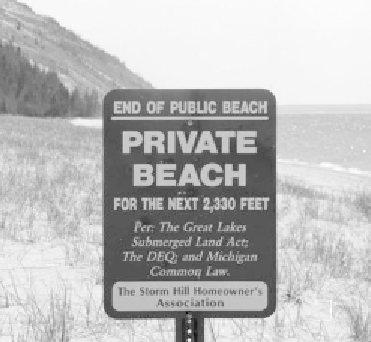Environmental Engineering Reference
In-Depth Information
despite the fact that under international law, sovereign states cannot take these
areas into their possession.
But who can own any meaningful area of the planet or atmosphere accord-
ing to international law? Are any areas classifi ed as a kind of common area of
the global community? Questions such as these can be answered according to
the principles of international law. It is important to be familiar with these
principles, because they specify the environmental protection rules that are
applicable in any given area and who has the right to enact and implement
these rules.
State jurisdiction
Even scholars of international relations can fi nd it strange that the international
community developed rules as to the ownership of each part of our planet.
However, this is the case. The greatest part of Earth's land is 'owned', administered
and managed by sovereign states. International law does not refer to ownership by
states, but to 'sovereignty', although the word is in many ways synonymous with
the ownership rights a private individual might have to an area of land.
Within the limits of international law, a state is entitled to form its own rules
for administering its territory and to decide on how these rules are to be
implemented and enforced. Other states are obliged to respect its territorial
sovereignty and they are not free to intervene in matters that take place within
its territory. States are, then, not allowed to enact laws that apply to the terri-
tories of other states and they are defi nitely not allowed to send their offi cials
(e.g. police forces) to enforce such laws.
Figure 4.1
A private beach at Lake Michigan in the USA. The landowners planted
the sign in order to prevent others from accessing their beach areas
although the public trust doctrine states that these are common areas.
(Photo © Melissa K. Scanlan)

Search WWH ::

Custom Search